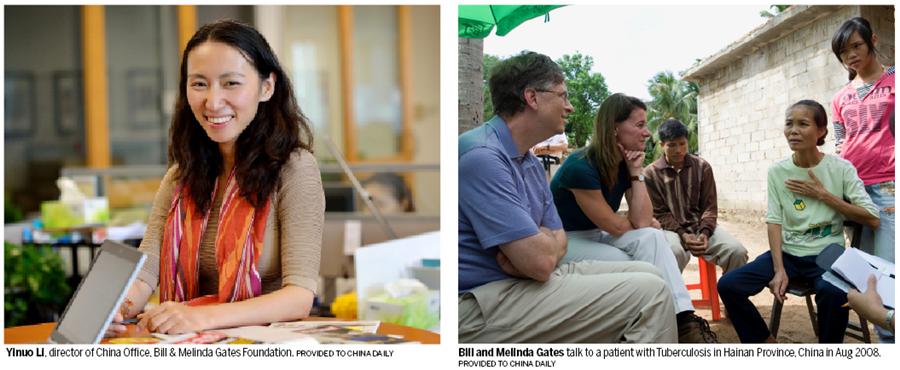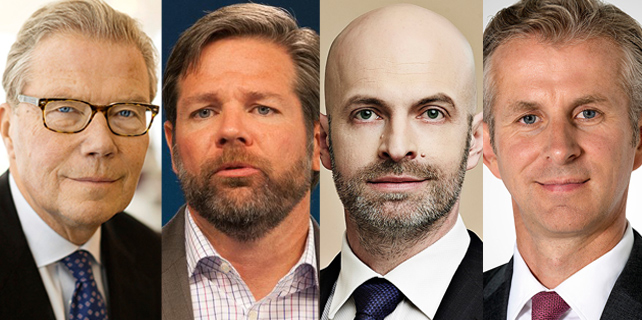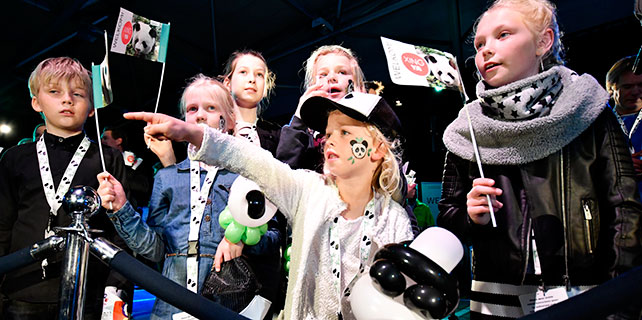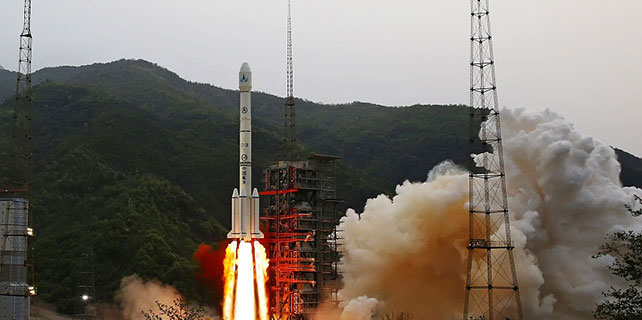Gates foundation has ambitious vision in china

What’s the role of China in this process of making a difference?
While China is still a developing country with a range of its own development challenges, as it continues to develop at a rapid pace its role in international development will inevitably change.
In fact, China is playing an increasingly prominent role in helping the world meet its biggest health and development challenges.
In Africa, China is one of a number of stakeholders, alongside the US that is assisting in building local capacity for disease control. Also in Africa, Chinese expertise in agricultural technology and approaches are helping African farmers produce greater, more reliable yields.
It’s very exciting to see that China shows increasingly strong global leadership in helping other developing countries address their health and poverty challenges. For example, China hosted the latest G20 Hangzhou Summit in 2016, highlighting development as a priority agenda for the first time in G20. Another example is that China pledged $60 billion to promote African development at the Forum of China-Africa Cooperation in 2015.
The Bill & Melinda Gates Foundation and the National Natural Science Foundation of China launched a new Grand Challenge last year: New Interventions for Global Health. How has China been involved in the investment and partnerships fostering innovation to solve key global health and development problems?
A good example of health innovation is the Reinvent the Toilet Challenge (RTTC), an initiative the foundation supports in China.
RTTC is designed to stimulate creative solutions to managing waste from public toilet facilities through stand-alone, self-contained modules. It is a great example of how Chinese-designed technology can be deployed to solve challenges that affect not just China but the wider developing world.
Separately, the Chinese government is investing significantly in improving sanitary facilities across the country. The China National Tourism Administration has announced plans to build or rebuild 100,000 toilets nationwide in the next five years.
Other challenges need systemic solutions. An example of this is the work we are doing with the China Food & Drug Administration (CFDA).Through our work with the WHO, we are helping the CFDA improve its regulatory capacity.
Our ultimate hope is that the CFDA can become a "sustainable functional regulatory authority". This is the key to creating an environment where Chinese producers of innovative, high-quality and low-cost vaccines can get their products to market in an economical way.
If more high-quality, affordable Chinese-manufactured products could be WHO prequalified; the ability of the global community to address global health challenges would be greatly strengthened.
Last year the foundation announced the establishment of the Global Health Drug Discovery Institute (GHDDI) in Beijing, in partnership with the Beijing Municipal government and Tsinghua University. How is the partnership going and what is the philosophy behind the partnership?
We are tremendously excited by the potential of the GHDDI to make a major contribution to disease control. We announced our intention to set up the Institute at the beginning of last year. And it was officially launched last month in Beijing, when Bill visited China.
GHDDI is the foundation’s first foray into founding such an institute globally. We hope this cooperation will leverage China’s technology R&D capacity, while ensuring that all information and knowledge gained from projects it funds will be promptly and broadly disseminated, and that all global health drugs developed as a result will be made available and accessible at an affordable price to those most in need. The success of this institute will play an important part in winning the fight against infectious diseases that disproportionately affect the poorest in developing countries.
Our philosophy behind philanthropy is to make markets work for the poor through catalytic philanthropy. As Bill once said, risk takers need backers. Good ideas need evangelists. Forgotten communities need advocates. And whether your chief resource is volunteer time or hard-earned dollars, for a relatively small investment, catalytic philanthropy can make a big impact
















